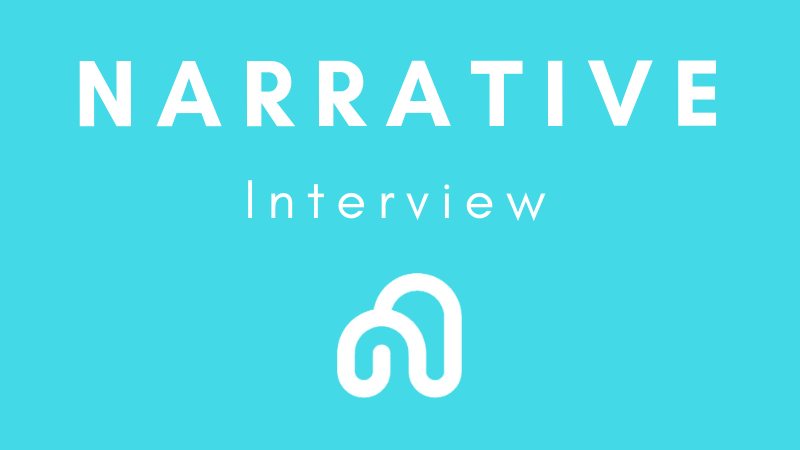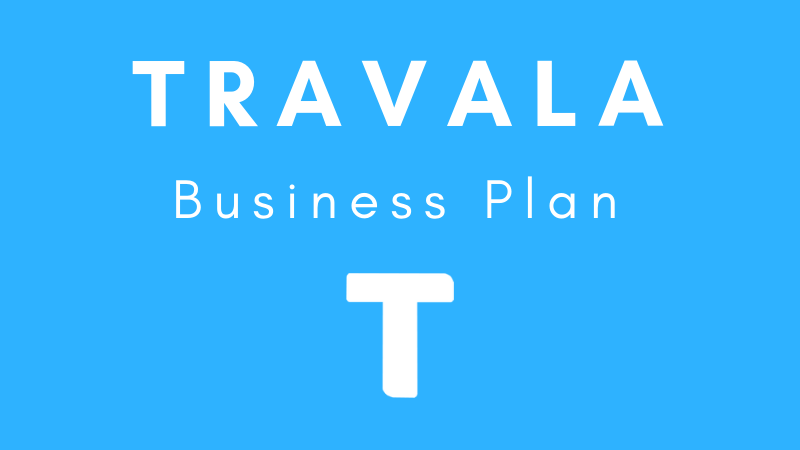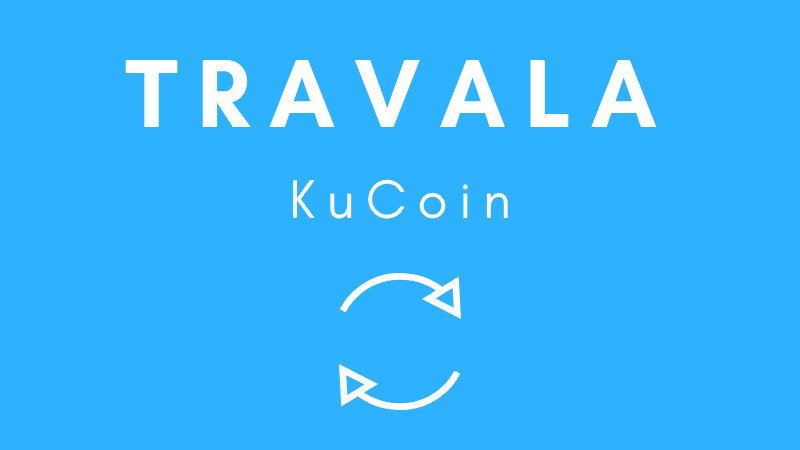
Narrative, a United States-based media platform, aims to create “The World’s Journal,” a member-controlled content network with a revenue-sharing model. Narrative co-founder and CTO Brian Lenz, who claims over 17 years of development experience and is listed by City of Zion as a developer of its neo-python node and SDK, recently spoke to NEO News Today’s Colin Closser about the Narrative project.
Colin – NNT: If you want to start off by giving me the elevator pitch for Narrative, go ahead.
Brian Lenz: Sure. So we’re trying to build a new content economy, where basically we’re flipping the script on traditional social media and content platforms. We’re going to put users in control, we’re building a decentralized system where the users have control and authority, and they’re rewarded for all their actions.
Our business model is basically built on 15 percent of the revenue that the system generates. And then the remaining revenue is split up between other positive actors within the overall network, broken down between the content creators themselves; Tribunal, which is an elected, kind of Supreme Court authority on the network; Niche owners — niches are unique content spaces for subject areas; we’ve got moderators, and then we have a couple of different activity rewards areas. Where people get rewarded for participating in the network.
Colin: I just wrote about your moderator system. So moderators will be compensated to some extent?
Brian: Exactly, yeah. They get a chunk of the pie. They get elected into their position, basically, the users get to choose who is in authority. So, you can get voted in, and you can get voted out, if you’re no longer representing their values.
Colin: So the niche owners are responsible for the number of moderators per niche. But then the niche community decides who, exactly, is going to govern them.
Brian: Exactly.
Colin: What spurred you to start the project?
Brian: Ted O’Neill came up with this concept, I think in 2017. Our background is in online community, so we’ve been building enterprise-class online communities for about 20 years. And we wanted something that could reach everyone.
Companies like Facebook use their users, their users are the product, we’re not a big fan of that approach. We think users should be rewarded for their contributions. They will actually be rewarded and compensated as opposed to just being a product that makes big corporations profits.
Colin: So, there’s a network effect [where the value of a communications platform correlates with its number of users]. What’s your plan to get over the hump, so to speak?
Brian: We have a whole marketing strategy. Melanie Mathos is our CMO and so she’s working through that. We’ve just eclipsed 5500 members.
The key component is going to be when we have content, pulling in good content creators. Obviously the one incentive will be the financial incentive…and that they can actually get rewarded. We’re going to be heavily focused on bringing in those content creators to try and create that network effect.
Colin: So if someone has a large following on Medium or Twitter, would you be reaching out to them privately, or will everyone get the same deals? Have you thought about bringing on known quantities, onboarding them at first?
Brian: Certainly we’re identifying those quality content creators that we want to bring over. We’ll be sharing details on that soon. They might want to write for Narrative, and write for their current platform.
Colin: Like, dual-publish, yeah.
Brian: Dual-publish, see how it goes. So we understand, that is the biggest challenge, so we are dedicating as much resources as we can on the marketing side to bring on those key content creators who will help grow the platform.
Colin: Yeah, that’s basically the most awkward question I can ask.
Brian: That is definitely the biggest challenge. We can build the platform. But we need to bring the people with it.
Colin: Okay, how do people get involved with the project right now? Do they sign up for the waitlist?
Brian: Exactly, you sign up for the waitlist, we’re unlocking rounds of 500. Once you’re into the alpha, functionality is primarily focused around niches. Niches get voted on for approval by the community, so you can vote and start building your reputation. You can also nominate yourself to become a niche moderator, and participate in our referral rewards program.
We have an auction system. You can get in and bid on [niches]. If you win an auction, you can pay for it with NRVE, which is the token currency of the platform. Or you can pay with fiat, if you don’t have NRVE.
Colin: Oh really. Who’s your payment processor?
Brian: We’re using Stripe for credit card payments.
Colin: Do you envision having a dual model, where NRVE token is a slight discount, but then normal people can use Stripe?
Brian: Crypto is a pretty big barrier for the general public. We want to make Narrative accessible to everyone, so we’re trying to break that down completely. So, if you want to buy something with NRVE, we’ll give you the option to pay with a credit card. There’s a 15 percent premium to do that.
Colin: How do you translate the deposit from the payment processor into demand for NRVE?
Brian: The cost is always in NRVE. If you’re bidding on an auction, you’re bidding in NRVE. When you want to actually go pay for something, if you choose to pay in fiat, we use the current market rate to determine what you pay in fiat. And behind the scenes, we go and acquire that NRVE on exchanges, and bring it into the network rewards.
Colin: Will you be doing that automatically? Will you have someone with a desktop running orders?
Brian: We’re hoping to automate it in the future. We’ve got a partner lined up to automate that.
Colin: How do you plan on getting the spot price of NRVE for your site? Is it like an API call to Switcheo?
Brian: We’re integrating with coinmarketcap’s API currently.
Colin: Okay, and you’re listed on how many exchanges right now?
Brian: Three. LAToken, Bilaxy, and Switcheo.
Colin: So you mentioned that Ted O’Neill has been building online communities for 20 years. Anything that the NEO News Today reader might have heard of? Or is it mainly back-end work?
Brian: Our current enterprise platform is called Hoopla, hoop.la, and we serve many enterprise businesses and organizations. Pinterest is a big one, we’ve got Bose. There’s a variety of different customers, big and small. We also have smaller organizations and non-profits.
Colin: You were talking about Facebook, how they kind of exploit their userbase. By monetizing them, while simultaneously acting like users are privileged just to be on their site, right?
Brian: Right.
Colin: I view Bitcoin as like the ultimate censorship resistance tool. So a lot of cryptocurrency users are going to be pretty ancap about people dictating their speech. But there’s a broad trend towards greater control and censorship of controversial opinions online. I think you can’t say nearly as much on Twitter today as you could in 2012.
I sent you the quotes from [Apple CEO] Tim Cook, that was on Monday [December 3rd, 2018]. In which Cook expresses satisfaction that Apple is actively banning certain opinions, and suggests it’s “a sin” not to do so.
How do you deal with controversial content from deeply offensive groups on your platform, and then other people calling for bans and censorship?
Brian: We feel that policing speech is an almost impossible proposition for a corporation. One of the main tenets in our acceptable use policy is that actions can’t be illegal. If it breaks the law, it doesn’t have a place on our platform. But as far as anything else, we’re taking a different approach entirely. We’re not going to be sitting on high, making decisions about who stays and who goes, and what content stays, and what content goes.
One of the fundamental tenets is free speech. We’re not going to police speech, we’re not going to set moral standards for the platform. We believe that the community should drive the community standards. That’s why we’re putting the community in charge, we’re allowing the community to elect the Tribunal, which is the Supreme Court-like entity that makes all the final decisions.
We’re leaving it up to our quality rating system to determine what content gets surfaced, and what content gets buried within the platform. So the users will get to rate content, and high-quality content will naturally be surfaced. You won’t really be able to find [buried content] unless you go searching for it specifically.
Colin: So you answered one of my future questions. This came up with Facebook, people arguing about whether it is functioning as a publisher or as a platform. And you’re arguing that Narrative falls towards the platform side of that.
Brian: Absolutely. And free speech is a core tenet. So you should be able to speak with free will, again, as the community determines is acceptable.
Colin: Okay. So I would say that you generally disagree with Tim Cook. You would leave that responsibility up to the community?
Brian: We leave it up to the community. And it’s not to say that he’s wrong, I understand where he’s coming from, they’re trying to avoid PR mishaps and making sure that the company is represented well. But we’re not trying to put ourselves in that position. We’re trying to build a platform that is free! That is open, that is decentralized.
Colin: Yeah, maybe as a cryptocurrency company, Narrative is far, far more resistant to bad press than Apple, as a centralized corporation, is.
Brian: Yeah, absolutely. Decentralization, right? It’s the key. Being that we’re leveraging a crypto token, and blockchain, it fits really well, and I think it’s going to be attractive to a lot of people.
Colin: What does the NRVE token enable besides access to niche auctions?
Brian: There’s going to be a variety of things that you can use the NRVE token to pay for. Advertising will be paid for in the NRVE token.
We will also have publications, which are more controlled content areas, whereas niches are more public spaces, where the community gets to vote on the moderators. If I purchase a publication on the platform, I get control of who the moderators are, and all that.
And then we’ve got ideas for down the line for in-app purchases, you’ll be able to pay for that with the NRVE token as well.
Colin: What about the future plans for the token? In the long run do you see yourself as running your own chain? Or do you see NEO as providing what you need?
Brian: NEO’s definitely providing what we need right now. There’s always the possibility for something like that in the future if we come up with new requirements. But we certainly love being in the NEO ecosystem and definitely want to help promote and keep it thriving.
Colin: What brought you to NEO in the first place?
Brian: Originally, we were going to be going with Ethereum. But we found that it was really hard to actually separate yourself with all the ICOs on Ethereum. And NEO was new and upcoming, and we certainly liked that we could write smart contracts in a variety of different languages.
Once we got connected with the community and City of Zion, it was just a phenomenal experience. I think the people make all the difference. It was probably one of the key decisions that we made.
Colin: Yeah, one thing about Ethereum is that this summer, and last summer, too, it cost a couple dollars just to transfer tokens. So it seems like that would take the profit out of a lot of business models.
Brian: Absolutely, yeah, and certainly the free transactions on NEO helped a ton. Of course, that may be changing, but it’s still going to remain significantly cheaper than processing on Ethereum.
Colin: Do you have anything coming down the pipeline for multiple language support?
Brian: Yeah, we definitely have plans for that. That’ll probably come after advertising. We’re focusing on English language right now; there will be other communities, focused around other languages like Spanish. We’ll determine what’s next after that.
Colin: How will you handle privacy of user content? Or is that kind of an oxymoron, because you’re a platform to publish?
Brian: Yeah, since it’s a publishing platform, all content is public. We’re not doing anything in terms of private content. And so, it’s not really a concern. Certainly, privacy of user information is important, so we’re collecting the minimal amount of information that we can.
We actually do have a KYC [Know Your Customer] component that we will add in so that you can become a verified user. And we will also do age verification. In order to see restricted content, you’ll have to become age-verified through the KYC process.
Colin: How big is the Narrative team at this point?
Brian: We’re at fifteen right now, we’re trying to stay lean with the trends of the market. And we’ve always operated businesses in a lean fashion, so we’ve got a great team right now, and we’re building. We had a delay with our beta, we’ve just announced a new roadmap for that. We’re going to be launching beta in March of 2019.
And so, while we’re disappointed, we’ve gotten through a lot of the development and infrastructure challenges of the past couple months and now we’re actually producing really rapidly.
Colin: Yeah, it seems like reworking the alpha, you were dealing with a lot of skeletons in the closet where it was holding you back. You weren’t able to scale the platform, because of past design issues?
Brian: Exactly, yeah. We kind of built it on a legacy platform, for rapid prototyping, essentially. So that at the end of the token sale we launched the alpha immediately when the token sale ended. And so, in order to get to that rapid prototype, we had to leverage a lot of legacy code, legacy infrastructure. And that was going to present challenges long-term. We had to re-design the architecture, re-design an entire front end, and then the infrastructure as well. It took a little bit longer than we thought, however, it’s going to really pay off in the long run.
Colin: Nothing’s ever less work than you think. The error bars only go one way.
Brian: Absolutely. We’re committed to delivering this platform, and we’re really excited about what it might do.
Colin: Who is your ideal user? Anyone that generates content would be number one, and then, what about people that consume content? Because you’re bringing advertising, right?
Brian: Content consumers, we want to reach critical mass on the content consumer side. Because there’s far more people, so that will drive the advertising value. We need the content creators…that’s focus number one. We want the content to be of high quality. And that will attract, naturally, the users. People will come at that point and see it.
But we also want to encourage people, as they’re interested, to participate in other aspects of the platform. You can be a moderator if you want. You can aim high, try to get elected into the Tribunal. And you participate in rewards for that as well.
And then one other thing that we’ve got is the Electorate. We built a staking model to reward users who participate in votes. So if you stake a certain amount of NRVE you become part of the electorate and receive a reward for participating in those votes.
Colin: Brian, most people don’t learn anything unless they read it three times. What do you want to tell the prospective user again?
Brian: That Narrative is going to change the way that people create and consume content on the Web. Yeah. We’re going to flip the model, we’re going to reward users, we’re going to put the money back in their pockets that they’re generating, as opposed to treating them as the product.
Brian Lenz is a co-founder and CTO of Narrative Company.







About The Author: Colin Closser
Colin Closser, M.D., was a speaker at the first NEO DevCon in San Francisco. A devoted contrarian, he has managed the improbable: a peaceful and healthy life, despite holding a medical degree. He aspires towards the wisdom of Michael Lewis and Nassim Nicholas Taleb.
More posts by Colin Closser